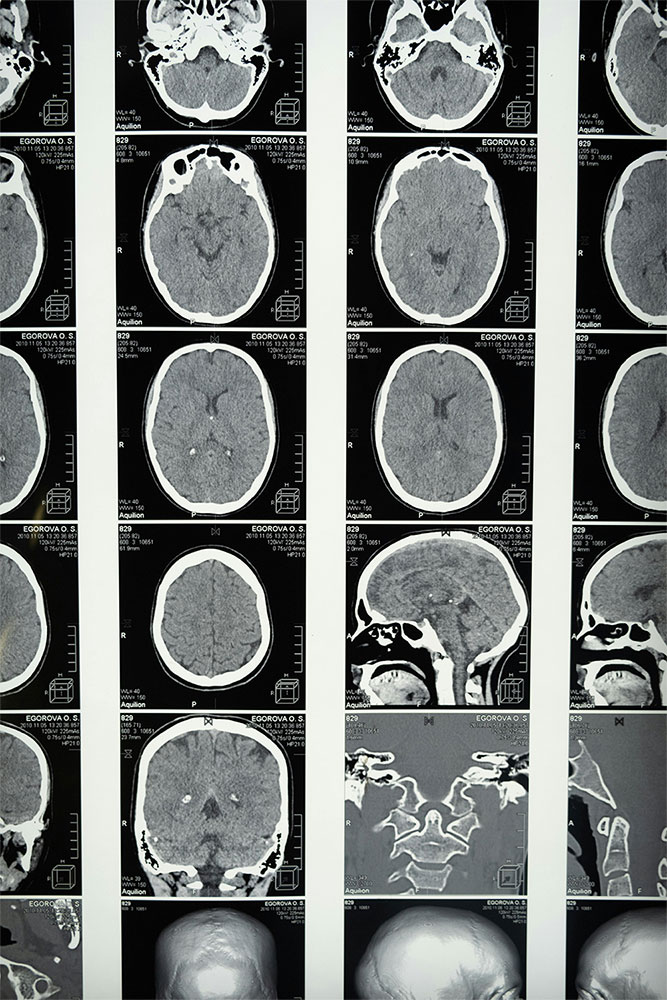Exploring safe driving with mild cognitive impairment (MCI) presents several challenges, encompassing safety concerns, cognitive abilities, and legal considerations. In this article, we delve into the intricate landscape of driving with MCI, shedding light on safety issues, essential abilities, and the legal framework surrounding this complex issue. As cognitive function fluctuates, individuals with MCI often grapple with maintaining their driving independence while prioritizing safety.

Christopher Ravn
Key Takeaways
1. Mild cognitive impairment (MCI) presents challenges for safe driving due to cognitive deficits, such as memory loss and attention issues, which may compromise road safety.
2. Healthcare professionals play a crucial role in assessing cognitive function and advising individuals with MCI on driving risks and alternative transportation options.
3. Strategies such as regular cognitive tests, driving assessments, and discussions about supportive measures are essential to address driving challenges and ensure overall safety for individuals with MCI.
Table of Contents
1. Mild Cognitive Impairment And Driving
2. Can People With Mild Cognitive Impairment Drive Safely?
3. What Are The Cognitive Abilities To Drive?
4. How To Support Driving Abilities For People With Mild Dementia
5. What Is A Cognitive Test For Driving?
6. What Are Cognitive Driving Distractions?
7. Is It Safe To Drive With Mild Dementia?
8. At What Stage Of Dementia Is It Better To Stop Driving?
9. Driving With Dementia Or Mild Cognitive Impairment: What Does The Law Say?
10. Reviews And Studies On Driving With Cognitive Impairments
11. Continued Driving Among Older Adults With Mild Cognitive Impairment
12. Frequently Asked Questions About Mild Cognitive Impairment And Driving
Mild Cognitive Impairment And Driving
Mild cognitive impairment (MCI) is a transitional stage that may lead to more severe cognitive decline like dementia as a result of normal aging factors. While individuals with MCI may experience noticeable changes in cognition, they can still manage their daily activities. However, driving may pose challenges for those with MCI.
Memory loss, attention deficits, and slowed reactions are associated with MCI and can affect driving. Forgetfulness and difficulty remembering directions impede navigation, while attention deficits lead to distractions, making it hard to focus on the road and potentially causing accidents due to delayed reactions to signals or hazards.
Given these cognitive challenges, individuals with MCI require frequent assessments to ensure safe driving. Strategies such as driving during daylight, avoiding high-traffic areas, and using assistive technologies can help mitigate driving issues associated with MCI.
Can People With Mild Cognitive Impairment Drive Safely?
When it comes to understanding the safety tied to individuals with mild cognitive impairment (MCI) driving safely, various factors need consideration. Healthcare professionals assess cognitive abilities, including memory, attention, and thinking capability, through neuropsychological tests and on-road assessments. Additionally, medical evaluations consider physical health, medication use, and coexisting conditions affecting safe driving.
Personal awareness and self-assessment of driving capabilities are crucial for those with MCI. Regular checks on cognitive function changes, such as increased forgetfulness or navigation difficulties, help recognize when it’s time to limit or cease driving. Communication with healthcare providers and family members about driving concerns allows collaboration in decision-making regarding driving privileges.
Ultimately, there must be a balanced approach to autonomy and safety for individuals with MCI. While some may drive safely with modifications or restrictions, there also needs to be an understanding on how fast does mild cognitive impairment progress, so that others may need to consider alternative transportation options to ensure road safety.

What Are The Cognitive Abilities To Drive?
When it comes to one’s cognitive ability to drive, it becomes more complicated due to the required cognitive abilities and the paramount importance of ensuring safety on the road. Thus, spatial awareness is crucial to gauge the position of one’s vehicle relative to others, identify pedestrians, and spot obstacles. Attention and concentration are essential to remaining focused on driving tasks and monitoring the constantly changing environment. Memory plays a vital role in recalling traffic laws, road signs, and routes. Therefore, decision-making and appropriate responses are reliant on an effective assessment of the situation.
Furthermore, multitasking abilities are necessary for tasks like braking, steering, signaling, and observing traffic conditions. Cognitive decline, such as in MCI or dementia, can significantly impact driving skills. Memory lapses may lead to forgetting directions or important traffic rules, while attention issues can increase distractibility and delay reaction times. Impaired decision-making and reduced spatial awareness compromise driving safety.
As cognitive decline progresses, individuals may face challenges in maintaining driving privileges and may need to explore alternative transportation options to ensure road safety for themselves and others.
How To Support Driving Abilities For People With Mild Dementia
In order to support driving abilities in people with mild dementia, one would need to take proactive measures to ensure their safety on the road. Thus, it is important to monitor changes familiar to routes, providing insights into cognitive decline. Changes in navigation or difficulties following known paths may indicate a decline in spatial awareness and memory function.
It is important to implement cognitive training methods to enhance driving skills. Programs focusing on decision-making, attention, memory, and abilities improving cognitive function tied to driving are crucial. Additionally, practicing driving in familiar, safe environments under supervision can boost confidence.
Hence, frequent testing and updating crucial driving competency skills are essential. Ongoing evaluations by healthcare professionals can identify changes in cognitive function and driving abilities, allowing time for necessary interventions or modifications. Refresher courses periodically provide added support for patients with dementia to adapt and evolve based on their cognitive functionality, ensuring safety and responsible driving.
What Is A Cognitive Test For Driving?
Cognitive tests for driving assess various cognitive abilities crucial for road safety. These tests cover memory, attention, processing speed, spatial awareness, and executive function. Common assessments include the Mini-Mental State Examination (MMSE), Trail Making Test, Clock Drawing Test, and tests of visual understanding and reaction time.
It is crucial that test results consider their performance and its impact on driving abilities. Poor scores in attention and executive function tests may indicate potential distractions or impaired driving sessions. Likewise, deficits in spatial awareness or processing speed may hinder safe navigation or quick responses to changing road conditions.
Thus, cognitive test results are valuable tools for healthcare professionals and driving evaluators to gauge fitness to drive. They help identify cognitive weaknesses that may compromise driving safety, guiding recommendations for further evaluation, training, or driving restrictions.
What Are Cognitive Driving Distractions?
Cognitive driving distractions encompass a range of mental activities diverting attention from driving tasks, compromising road safety. Examples include daydreaming, where the mind wanders from driving-related tasks. Emotional distress, like stress or anger, can impair cognitive function, elevating accident risks. Engaging in complex conversations or problem-solving while driving may overload cognition, reducing awareness of surroundings.
To manage cognitive issues while driving, stay mindful and focus on the task at hand. Minimize external stimuli by turning off the radio or stowing your mobile phone. This reduces cognitive overload and enhances concentration. Address emotional issues before driving and practice relaxation techniques to manage stress. Prioritize attention to the road, minimizing cognitive distractions to ensure safety for all.
Is It Safe To Drive With Mild Dementia?
Driving with mild dementia is risky due to cognitive impairment affecting one’s abilities. Memory lapses, attention issues, slowed reaction time, and difficulty making decisions compromise vehicle operation safety. These impairments increase accident chances, endangering both the individual with dementia and others on the road.
Navigating safety concerns requires adapting strategies, like driving in familiar areas and avoiding peak hours or bad weather. Installing driving aids, such as GPS navigation or lane departure warning systems, provides additional support.
As dementia progresses, caregivers should consider alternative transport options like public transport or ridesharing services. Consulting a healthcare professional for driving decisions based on capability and safety considerations is crucial for ensuring safety and well-being.
At What Stage Of Dementia Is It Better To Stop Driving?
The stage where it is important for one to stop driving is dependent on their cognitive abilities and progression of the disease. In the early stages, those with mild cognitive impairment (MCI) may still be able to drive carefully. However, as the stage of dementia progresses to a more advanced stage, such as moderate or severe dementia, driving becomes increasingly unsafe due to significant cognitive decline. This may include memory loss, impaired judgment, and decreased reaction times. Therefore, healthcare professionals need to play an important role in assessing cognitive function and advising drivers to cease driving when the time comes.
When telling someone to cease driving, you will need to think about the emotional and practical impact on that individual with MCI and their families. This is because they will need to adjust to the transportation arrangements and this will impact their independence and quality of life. Therefore, it is important to have open communication and support from healthcare professionals and caregivers can help navigate this transition with sensitivity and understanding.
We Believe Prioritizing Brain Health Enhances Your Quality Of Life
Get to know our team, our mission and how our EVY LIGHT® can provide you and your loved ones with a fuller life, letting you breathe a little easier.
Driving With Dementia Or Mild Cognitive Impairment: What Does The Law Say?
The law tied to driving with dementia and mild cognitive impairment (MCI) depends on various areas and jurisdictions. Generally, it does touch on safety and protection for both the person and the general public. Legal requirements and restrictions may include mandatory reporting of cognitive impairments to licensing authorities, periodic assessments, and the possibility of revoking their license if cognitive abilities deteriorate drastically.
Therefore, guidelines for healthcare providers provide some form of recommendation for advising patients with cognitive impairments about driving. These guidelines aim to balance the preservation of individual autonomy with public safety concerns. This helps provide healthcare professionals with tools to assess cognitive function. It is also important to discuss driving risk with patients and their families and to make recommendations regarding driving restrictions or cessation. By following legal requirements and the given guidelines, healthcare providers can help ensure safety for those with cognitive issues and the public while navigating those who are driving with dementia or MCI. Overall, it needs to be undetsood on how to help someone with cognitive impairment.
Driver's License Renewal Policies
Driver’s license renewal policies vary depending on the jurisdiction and the severity of cognitive impairment. For those who are suffering from mild cognitive impairment (MCI), they may have specific issues when it comes to renewing their licenses as their cognitive abilities may affect their driving skills. Some jurisdictions require medical assessments or cognitive screenings as part of the renewal process. This is particularly for those who are older or those with known cognitive issues. These assessments evaluate cognitive function, visual acuity, and physical abilities to drive safely.
It is important to have regular assessments and skill updating that are important to maintain driving abilities, especially for those with MCI. Therefore, it is important for healthcare professionals to identify changes in cognitive issues and driving abilities. They will also need to inform the decision about license renewal and to make sure that the person is fit to drive safely. Additionally, participating in refresher courses or other adaptive driving programs tailored to individuals with cognitive impairments can help enhance driving skills and confidence on the road.

Enhance your brain performance through the power of light.
Comfortable and easy to use 40Hz light therapy to support and improve your brain function.
View Our LightReviews And Studies On Driving With Cognitive Impairments
Literature reviews provide valuable insights into the intersection of cognitive issues and driving. Comprehensive reviews talk about findings from multiple studies and thus provide an overview of the current understanding of how conditions like mild cognitive impairment (MCI) or dementia may affect one’s driving ability. These reviews touch on factors such as cognitive impairment (MCI) or dementia and how it affects their driving. These reviews touch on factors such as cognitive decline progression, driving performance, and the effectiveness of interventions or support strategies.
Recent studies have touched on specific issues of driving behavior and risks associated with cognitive impairments. Key insights may include looking at patterns of errors or issues that a driver with MCI or dementia may encounter. Therefore, it is important to explore the impact of cognitive decline on driving performance metrics. This is used to evaluate the effectiveness of interventions that are aimed at enhancing safety for drivers that have cognitive impairments. By synthesizing findings from literature reviews and highlighting insights from newfound studies, researchers and healthcare professionals can provide evidence-based approaches to manage driving challenges in people with cognitive impairments.
Continued Driving Among Older Adults With Mild Cognitive Impairment
Many older adults with mild cognitive impairment (MCI) continue to drive despite cognitive issues, highlighting the implications and safety concerns. Studies have shown that a significant number of people with MCI retain their driving privileges to maintain autonomy and mobility. However, driving with MCI poses safety risks, as cognitive impairments can affect driving abilities and increase the risk of accidents.
Supportive measures and informed decision-making are crucial to address driving challenges in older individuals with MCI. Healthcare professionals play a key role in testing cognitive function, discussing driving risks, and providing guidance on supportive measures. Strategies may include regular cognitive tests, driving assessments, and discussions about alternative transportation options. Open communication and collaboration between healthcare providers, individuals with MCI, and their families are essential to navigate the complexities of driving with cognitive issues and ensure overall safety.
Learn What Others Have Experienced with EVY Light
See how others have achieved a sharper mind by activating their gamma brainwaves in combination with maintaining a healthy lifestyle.
Frequently Asked Questions About Mild Cognitive Impairment And Driving
Can People With Mild Cognitive Impairment Safely Drive?
What Are Cognitive Driving Distractions?
Cognitive driving distractions encompass a range of mental activities diverting attention from driving tasks, compromising road safety.





















































































